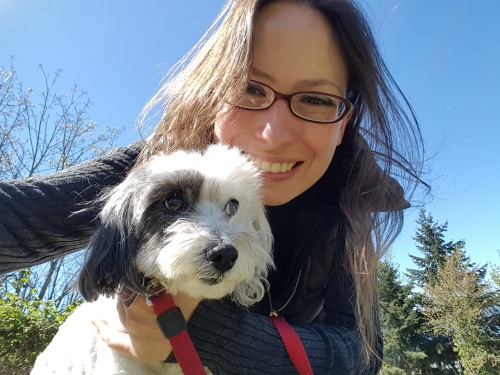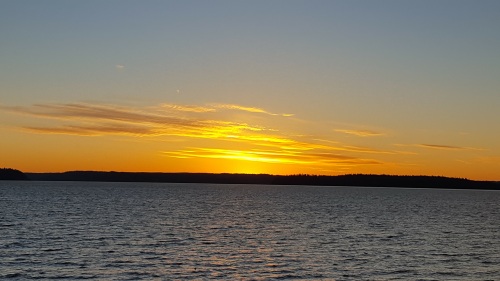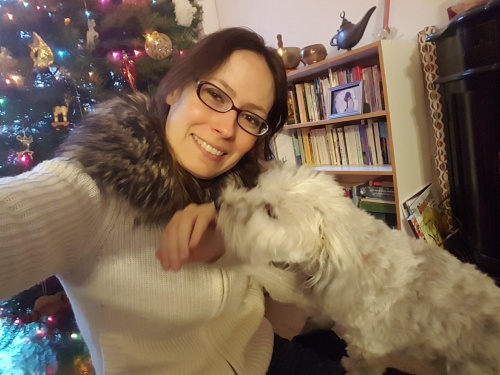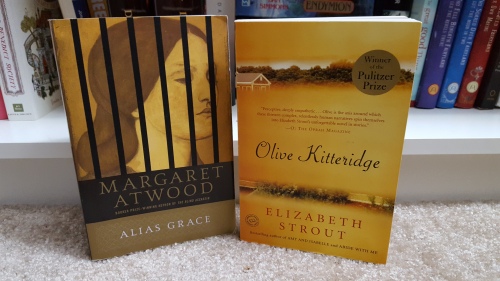Well, hello again! I’ve been taking a break from blogging after struggling with health issues post-car accident, but it is time to talk about books. I cannot miss an opportunity to talk about books with you all!
Here are this year’s stats. I’ve read 52 books this year, a little bit down from last year. (My usual goal is 60, and I’m hoping I’ll get closer to that number by the end of the year.) About a third of those books were adult speculative fiction (science fiction and fantasy), which is in line with my usual reading habits. I read a lot less YA than normal, which makes sense given I was writing a novel that wasn’t YA. I read a lot more romance than usual, mostly fueled by my fondness for Georgette Heyer, who I definitely recommend reading while recovering from a brain injury. 79% of my reading was written by women, the same as last year, and 25% of my reading was written by writers of color, also similar to last year.
My Favorite Volume of Poetry:
Night Sky with Exit Wounds, by Ocean Vuong
I haven’t read much modern poetry, but this volume made me want to read more. I like his sense of language and the emotionality of his poems.
My Favorite Romances:
The Grand Sophy, by Georgette Heyer
Honestly it’s between this one and Frederica for my favorite Georgette Heyer Regency romance thus far. Why Georgette Heyer? Because she does some serious world building and in general doesn’t go in for weird modernizations for a historical. She does jump the shark occasionally plot-wise, but these two novels, if I remember correctly, are particularly solid in that regard. And swoon-worthy, which is what I want from a good romance.
The Undateable, by Sarah Title
After falling in love with Heyer’s work, I tried to find a modern romance writer I also liked. And finally after mostly despairing I stumbled upon this title. The female protagonist is a feminist librarian who likes little dogs so basically this book was written for me.
My Favorite Literary Titles:
These three works are as different as different can be, but all blew me away.
The Vegetarian, by Han Kang
This novel is quite weird and effective in its weirdness. If you want something uncomfortable and surreal that makes you think, give it a try.
Howard’s End, by E.M. Forster
I found this classic about social conventions and mores and gender dynamics in turn-of-the-century (that’s 19th to 20th century, mind you) England to be surprisingly fascinating. I got so uncomfortable in the middle, and so sure my lovely protagonist was going to make a terrible and unsupportable error that I wanted to stop reading. I’m glad I didn’t.
Difficult Women, by Roxane Gay
What can I say about this short story collection? Well, Roxane Gay has become one of my favorite writers, largely based on these stories. I kept sending my friend excerpts and links to various stories because I had to share them with someone as I read them. Roxane Gay has a clear eye for revealing poignant, painful, and uncomfortable truths through her fiction. Highly recommended.
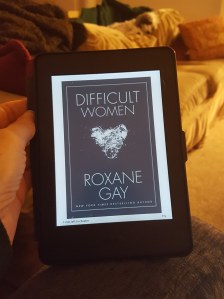
Do not be distracted by the little dog sleeping in the background.
My Favorite YA Novels:
Landscape with Invisible Hand, by M.T. Anderson
I love M.T. Anderson’s Feed so I was excited to try his newest science fiction YA novel, and while I didn’t love it as passionately as Feed, it was thought-provoking and well drawn, showing the personal effects of an alien invasion on one teenager, including the detrimental economic consequences. This novel has a small, mostly quiet scope that creeps up and knocks your socks off.
Jane Unlimited, by Kristin Cashore
This is one of my top three reads of the year (along with Roxane Gay’s collection and a science fiction novel we haven’t gotten to yet). Its structure is fascinating and allows Kristin Cashore to play with several different genres (some speculative) in a way that really worked for me. I was worried she wouldn’t have an overall progression/arc across the entire novel, but she managed to do it. This book was crafted with such attention to detail, it stuns me to contemplate. If you enjoy parallel universes, art and being an artist, capers, spy shenanigans, really creepy shit, devoted dogs, and/or magical houses, you might enjoy this book. Or, you know, if you just want to read something brilliant.
My Favorite SF/F Novels/Novellas:
Mostly science fiction this year (except for The Stone Sky), which is very exciting!
The Stone Sky, by N.K. Jemisin
I was a little nervous beginning this because the stakes felt high to me–would N.K. Jemisin land the ending to this fascinating trilogy? The answer is yes. She manages to tie all the threads together. Probably the must-read fantasy trilogy of this decade.
Six Wakes, by Mur Lafferty
This clone generation ship murder mystery was a fun frolic; very entertaining and exactly what I was in the mood for when I read it.
Star’s End, by Cassandra Rose Clarke
There is some great character work in this science fiction novel about a woman poised to take over a powerful corporation from her ailing father. It asks important questions like: how much does your family inform who you are, and can you avoid their mistakes? How much does the past and your past choices inform who you are? What does it mean to make compromises for the greater good? What responsibility do we bear for other people’s past mistakes? How can we make amends to people we have betrayed or is that even possible? Ah, such a good book. It also involves terraforming and corporate espionage and first contact and clones (and oh how I love clone stories!)
Ninefox Gambit, by Yoon Ha Lee
Raven Stratagem, by Yoon Ha Lee
The first two of a…trilogy, I assume?…of military science fiction fantasy, these books blasted into my life, full of originality and freshness. There was a certain curve figuring out what was happening in the first novel as I grew to understand the world, but the effort was well worth making.
All Systems Red, by Martha Wells
This page-turning novella featuring a “Murderbot” trying to protect her clients is almost painfully charming. The plotting and world building is top-notch here in a fun mystery-action adventure, but it is the inwardly misanthropic yet deeply caring android protagonist that steals the show and makes me love this story. And I got a sneak peek at the next two installments in the series, both due out in 2018, and they’re excellent as well!
The Hydrogen Sonata, by Iain M. Banks
And now we come to the third of my three favorite books of the year, and the last of the Culture series. I heard this book being recommended as an uplifting novel, which seemed like something I could do with this year, and then I heard it was Iain Banks’s last novel and he wrote it when he knew he was dying (I am not certain this is true, by the way, but it informed my decision to read it). And oh, this book. It deals with questions of death and the meaning of lives and entire cultures and species, and the anxiety of considering what comes after life as we know it.
I will say that overall this book didn’t get great reviews. It was long and a bit meandering and not a page-turner, and there were some holes and oversights. It is a flawed novel, yes. But for me it also managed to hit some relevant and powerful truths that made it very worthwhile for me. And I have to admit I have a weakness for Culture Ships, musicians who aren’t quite sure of their way, and questions of immortality. So it is a definite Amy book.
* * * * *
And that completes my list. I’m glad I got to read so many interesting books this year, and as always I’m looking forward to MORE BOOKS. Feel free to tell me what you read that you most enjoyed this year; I’d love to hear your favorites!

